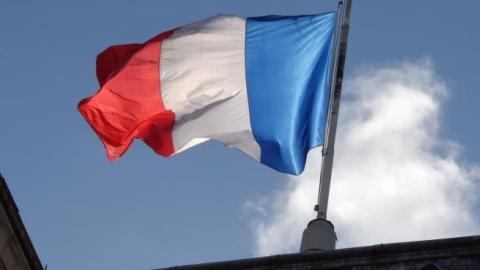After the horrifying terror attacks in Europe over the past several weeks, a compelling international leader has emerged in the fight against Islamic radicalism: France, particularly its Socialist government. In the aftermath of the assaults in Paris on the Charlie Hebdo magazine offices and HyperCacher kosher supermarket in January, the French left has begun reclaiming its long-standing principles of secularism and liberalism, which in recent years took a back seat to multiculturalism and political correctness.
Following the killings in Copenhagen in mid-February—at a synagogue and at a gathering to discuss Islamist attacks on cartoonists for depicting Muhammad—French Socialist Prime Minister Manuel Valls immediately lent his support to the Danes, tweeting that “liberté” had been attacked, adding, “France will not yield.” This response has much to teach the American left.
For more than a decade, the American left has made a priority of avoiding giving offense over a serious examination of radical Islam. It is quick to charge Islamophobia or to challenge those who do not adopt their values-neutral language, implying that frank discussion on the challenge of radical Islam will bring further attack. But the result has not been a lessening of violent jihad. Instead, otherwise thoughtful liberals now recoil from difficult discussions about the impetus underlying Islamic terror.
Be it President Barack Obama ’s refusal to use the phrase “radical Islam”—opting instead for “violent extremism”—or his denying that the self-proclaimed Islamic State is in fact “Islamic,” the impact is the same: Discussion and debate, and the soul-searching that comes with those important endeavors, are stymied.
By contrast, France’s leaders on the political left are adopting the opposite approach: They are rejecting the politically correct, value-neutral approach that failed to challenge Islamic radicalism until homegrown Islamism came back to strike France. Now they are confronting the substance and meaning of Islamic radicalism straight on.
After the Paris attacks, France’s Socialist leadership embraced the fight against Islamic terror as a matter essential to French national identity, defining it as a struggle for the principles of the Enlightenment and tolerance against reactionary fanaticism.
In formulating its response, the French left is reasserting two of its founding principles. The first was a product of the Enlightenment and the great 18th-century thinker, Voltaire: secularism. (In many ways, Charlie Hebdo itself is a vulgar heir to a rich French secular tradition of antireligious satire.) The second principle, civic unity, was articulated best by Voltaire’s philosophical opponent, Jean-Jacques Rousseau. He argued for republican unity, the notion that partial, private interests need to be subordinated to a universal but civic good.
Understanding these doctrines helps convey their value to the terror debate. Secularism first arose in fervent opposition to France’s established religion, the Catholic Church, which was aligned with the ancien régime. The left’s effort to separate religion from public life succeeded in 1905 when France undertook major legal reform, permitting freedom of private worship but denying the church state funding. Public education was also made fully secular.
Today, France’s strict separation between religion and the state, laïcité, forbids state-sanctioned religious expression. This fierce protection of public life from religion—which includes a law banning the hijab, the Islamic head scarf for women—is foreign to most Americans who view the state as promoting freedom of religion, not freedom from religion.
The challenge for the French left is to apply the same principles it has imposed on Christian clergy a century ago to its large Muslim community, without falling prey to prejudice or ignoring the real economic and social discrimination that still hinder the integration of Muslims. Interestingly, Prime Minister Valls, now the most popular politician on the left, was long isolated in his party for upholding these secular principles.
The second principle, republican unity, is essential to the foundation in 1870 of France’s Third Republic—its hallmarks are civic assimilation, secularism and patriotism. It is around these principles that Mr. Valls has rallied France. Unlike many in the American left, Mr. Valls speaks forthrightly about France fighting a “war with terrorism, jihadism, and radical Islam,” while rejecting the charge of Islamophobia and other efforts to “silence critics of Islam.”
Jonathan Chait recently argued in New York magazine that the American left is often willing to use identity politics to suppress freedom of expression. Emphasizing a fear of giving offense should offend Muslims most of all, as it suggests that their religion renders them incapable of serious debate.
To place political correctness above the defense of liberal values is to cede our societies and their Muslim members to extremist ideas. We can be civil without being squeamish. We might look back at French leadership, focused on the ideological character of radical Islam and unapologetic in its adherence to liberal principles, as a turning point in our shared struggle.



















